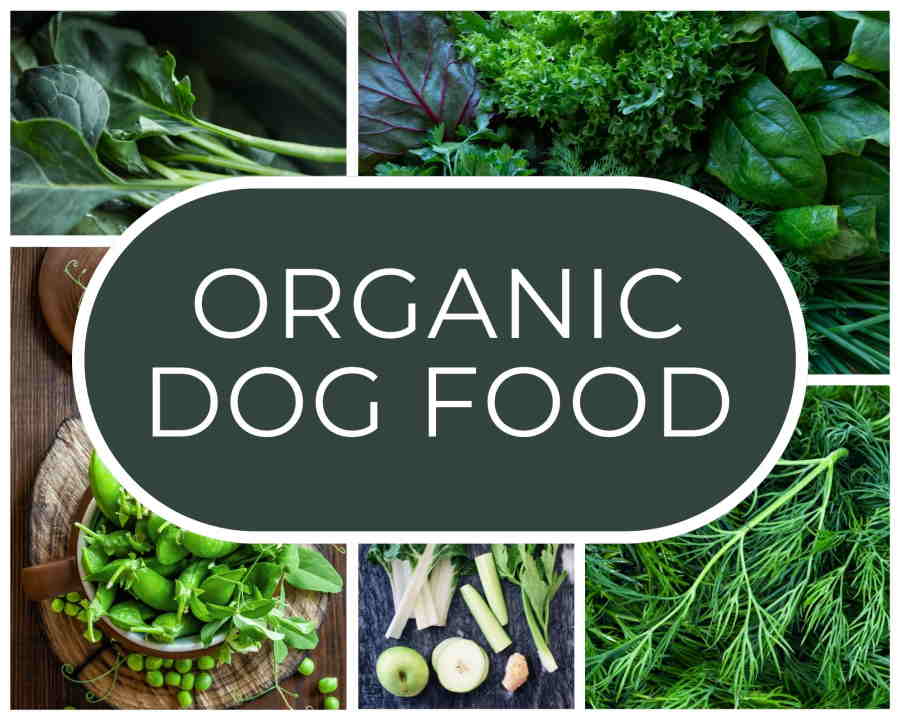- Home
- Shih Tzu diet
- what is organic dog food
What is Organic Dog Food?
When it comes to organic dog food for your Shih Tzu, there’s a lot of information to take in.
While most people associate organic food with vegetables, fruits and grains, these foods can also be organic when referring to pet food.

Organic dog food is a way to feed your dog that focuses on fresh, healthy grains and meats that have been processed as little as possible and do not contain unnecessary chemicals and fillers.
Additionally, many manufacturers of organic dog food use ingredients sourced from local farms instead of distant suppliers in order to reduce their carbon footprint.
Some pet parents might think that organic dog food must be better for their pup than non-organic versions of the same foods.
Others may assume that organic and non-organic labels have nothing to do with the nutritional value of the food but are instead indicators of some other kind of value.
In reality, understanding what organic dog food is and why it’s good for your pooch can be very simple once you know the facts!
Let’s take a closer look...
How is Organic Dog Food Different from Non-Organic?
This is a fair question, and many want to know what makes organic dog food different from the regular-schmegular kind you can find at your local big-chain store.
To begin, the concept of organic can be somewhat confusing in the world of pets and animal care. But "organic" is simply a term used to describe ingredients in your dogs food.
According to the U.S. Department of Agriculture, organic refers to how a food product is grown and processed according to specific guidelines set forth by the federal government.
These guidelines refer to many factors such as:
- Soil quality
- Use of additives
- Pest control
- How animals are raised
Foods can be considered certified organic if it has grown on soil that has not been exposed to prohibited substances for at least three years.
Synthetic pesticides and fertilizers are common examples of prohibited substances.
The USDA's definition is important because this is the definition that the Association of American Feed Control Officials (AAFCO) used to define organic standards for pet food.
This is because no official definition for dog food is defined under existing federal laws as humans have.
Therefore, for a brand to be considered organic and marketed as so, it must meet human standards.
If you've seen organic dog food brands in your local store, know that there are different degrees of how much of a particular bag of food is organic.
There are three main types of organic dog foods that you'll see: 100%, 95%, and 70%.
100% Organic Dog Food
This percentage, along with the 95% organic bag, will have the USDA seal on it.
All the ingredients in the bag must be certified organic before it can hold this title. It will also need to state which body certified it as organic.
95% Organic Dog Food
This is the category where you will find most dog foods. For it to be considered 95%, the non-organic ingredients can not exceed 5%.
This bag will also have the USDA seal on it as well as the body that certified it organic.
70% Organic Dog Food
Dog food with 70% of its ingredients from an organic source will have the phrase "made with organic" on the bag.
The bag as a whole can't be called organic, nor will this type of dog food have the ability to have the USDA label on it.
However, the body that has certified it as organic can be labeled on the bag.
Read our article "Organic vs Holistic vs All-Natural Dog Food" and learn what they really mean for your dog.
Pros of Organic Dog Food
There are some benefits to feeding your dog organic dog food as opposed to a non-organic brand.
Here are a few that may help you decide when choosing the right food for your dog.
Health Benefits
While more research needs to be conducted on the health benefits of organic vs. non-organic dog food, there has been some promising research.
There are a few more added health benefits that are in organic dog food than non-organic.
Organic meat contains more omega-3 fatty acids than non-organic as well as there being more antioxidants found in organic products.
Whether or not this is significant enough is still out for debate.
Fresher Food
Organic dog food is typically fresher than conventional dog food because it contains fewer preservatives.
Food preservatives are chemicals that are added to foods to extend its shelf life and make them last longer.
So, if you have a bag of dog food that lasts a long time, it most likely contains a lot of preservatives.
Unfortunately, some studies suggests that certain artificial preservatives, such as ethoxyquin, may be harmful to one's health.
If you're concerned about artificial preservatives in your dog's food, going organic may be a good option.
Limited Use of Pesticides
Probably the most enticing benefit to going organic is the limited use of harmful pesticides in your dog's food.
In addition, because of the standard by which organic ingredients are monitored, many feel that it is safer to give their pups organic dog food.
Organic meat also does not contain added growth hormones that non-organic meat has.
Cons of Organic Dog Food
Availability
Organic dog food isn't always easy to find in grocery stores, which is a big hindrance for many dog owners who want to switch their dog's food.
Furthermore, many big chain stores, like Walmart, only carry a select number of dog food brands, and many of those brands are not organic.
In more rural regions, it is more difficult to find specialty dog food stores, which carry the largest assortment of organic dog foods.
As a result, people may be forced to order online, which may be more expensive than in-store purchases.
Cost
Organic dog food is known for being a bit more costly than its non-organic counterparts.
Dog food already has confusing regulations and is not held to the same standard as human food.
Many of the ingredients that people may consider harmful in dog foods are usually cheaper and more affordable for dog owners.
If someone is considering going organic, the price may stop them before they can see if the organic is more beneficial to their dog.
Should You Feed Organic Dog Food Every Day?
Regardless of whether your dog eats organic or non-organic food, he or she will need to eat on a daily basis.
However, if you are switching your dog to a new food, you will have to gradually wean them off of their old food, as changing your dog's food too quickly can cause digestive issues.
Typically, you will need to transition them over a 7-day period by gradually increasing the amount of their new food and decreasing the amount of their old one.
This process may take longer if your dog is prone to a sensitive stomach.
Where To Find Organic Dog Food
You can always buy organic dog food in specialty dog stores like Pet Smart, Petco, and Loyal Pets Supplies, as well as other places that may be more local to your area.
Alternatively, you could purchase dog food online from any of the retailers listed above, as well as from Amazon.
It may be harder to find a good range of organic dog food in big box stores, but it never hurts to ask an associate if you are having trouble.
Here are just a few examples of organic dog foods that you may want to look into:
- Tender and True Organic Dog Food
- Organix Dog Food by Castor and Pollux
- The Honest Kitchen Dog Food
- Primal Freeze-Dried Formula Dog Food
Summing up,
Today, the term "organic" is used to describe a wide variety of food, from fruits and vegetables to meat and dairy. It's an industry term that describes whether a food was produced without synthetic pesticides, herbicides, and other chemicals.
Organic dog food can be a great solution to your dog's needs.
If you are looking to switch to organic dog food, remember that organic dog food has to be USDA certified to be considered under the AAFCO guidelines.
While more research must be done to show the full extent of organic dog foods' benefits, there are a few.
Organic dog food can have more health benefits to your dog's overall health and doesn't have the harmful pesticides that other non-organic food may use.
If you are looking to go organic, make sure to take into account the lack of availability in some areas as well as the added costs associated with organic marketing.
If you are switching your animal's food, switching them over a week will be the best way to ensure their tummies can handle the change.
The most important thing to remember is that if you're ever feeling overwhelmed by dog food rules, you can always reach out to your veterinarian for suggestions on what foods may be best for your pup.
- Home
- Shih Tzu diet
- what is organic dog food



